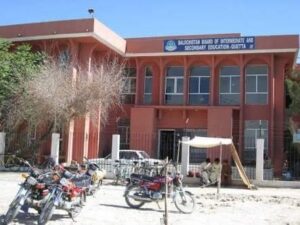Editorial:
The education system in Balochistan is facing an unprecedented crisis, with over 3 million children currently out of school. This alarming statistic, disclosed by Raheela Hameed Khan Durrani at the recent launch of the National Achievement Test (NAT) by the Pakistan Institute of Education (PIE), underscores the urgent need for immediate and effective remedial measures. This revelation comes amid a national crisis, as Pakistan holds the dubious distinction of having the highest number of out-of-school children globally, exceeding 26 million.
In Balochistan, an education emergency has been declared, reflecting the broader national problem. Despite the constitutional guarantee of free and compulsory education for children aged 5 to 16 under Article 25-A, the reality on the ground remains bleak. Durrani emphasized that the staggering number of out-of-school children represents the biggest challenge for the current government in Balochistan. While the government has committed to ensuring maximum enrollment, Durrani’s frustration over the lack of action on proposed solutions, such as solarizing government-run schools to protect children from extreme weather conditions, is palpable. These crucial recommendations, aimed at creating a more conducive learning environment, have yet to receive cabinet approval.
The situation is even more dire for girls in Balochistan, with increasing dropout rates described as “alarming.” In an effort to combat this trend, the government plans to provide transportation facilities to girls, thereby reducing dropout rates and improving access to education. This initiative is commendable, but it must be implemented without delay to make a tangible impact.
The 2023 NAT survey results for Balochistan further highlight the severity of the situation. Fourth graders scored an average of 40 percent in math, while eighth graders scored 31 percent. Scores in English and Urdu were slightly better, with averages above 50 percent, consistent with national figures. These dismal scores reflect the urgent need for comprehensive educational reforms and effective intervention strategies.
Dr. Shahid Soroya, Director General of PIE, rightly emphasized the importance of collaboration with the Balochistan Assessment and Examination Commission (BAEC) and the School Education Department, Government of Balochistan (SEC). Effective partnerships and concerted efforts are indeed crucial to addressing the educational challenges in the province. However, these partnerships must translate into concrete actions and tangible results.
The situation in Balochistan calls for immediate and comprehensive action. With over 3 million children out of school and the highest national dropout rate, the crisis is undeniable. The government’s commitment to education must be more than rhetoric; it must be translated into concrete actions to ensure that all children in Balochistan receive the education they deserve.
We urge all stakeholders—government officials, educational institutions, non-governmental organizations, and the international community—to join hands in addressing this critical issue. The future of Balochistan’s children hangs in the balance, and the time to act is now. Delaying action or allowing bureaucratic inertia to hinder progress is not an option. The stakes are too high, and the consequences of inaction too severe. Let us come together to create a brighter, more educated future for Balochistan before it is too late.






